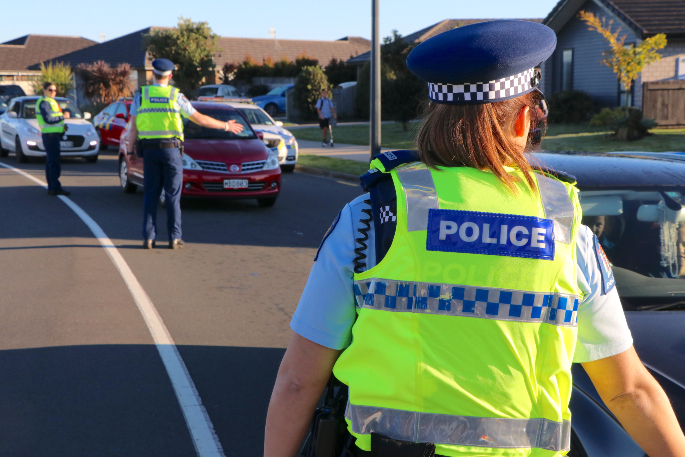The government has introduced legislation that will enable roadside drug testing as part of its commitment to improve road safety, Transport Minister Simeon Brown says.
"Alcohol and drugs are the number one contributing factor in fatal road crashes in New Zealand. In 2022, alcohol and drugs were contributors to 200 fatal crashes on our roads.
"Despite this, police currently have no way to undertake saliva testing for drugs at the roadside, and only 26 per cent of drivers think they are likely to be caught while driving under the influence of drugs."
Brown says the govt is enabling oral fluid testing at the roadside for screening purposes so that police can procure the drug testing devices needed to crack down on drug driving.
He says oral fluid testing is common overseas and is an easy way to screen for drugs at the roadside.
"Our approach will bring New Zealand in line with Australian legislation and will remove unnecessary barriers that have prevented police from taking action to remove drugged drivers from our roads.
"Our legislation will empower police to randomly screen drivers for drugs, similar to how drink-driving is enforced."
Brown says drivers who refuse to undergo oral fluid testing will be issued with an immediate infringement notice and be prohibited from driving for 12 hours to reduce the risk of tragic drugged driving outcomes.
He says finding more effective ways to target drugged drivers underlines this Government’s commitment to road safety.
"Our Government Policy Statement on land transport 2024 outlines our expectation that Police undertake 50,000 oral fluid tests per year once the roadside drug testing regime is rolled out.
"Our approach takes a much harder line on the causes of death and serious injury on our roads. We will do this by ensuring that motorists are safer and that people impaired by drugs think twice before getting behind the wheel."
The Land Transport (Drug Driving) Amendment Bill will be sent to the Transport and Infrastructure Select Committee for consideration after its first reading this week.
The difference in approach:
- Legislation passed by the previous government in 2022 enabled oral fluid testing (OFT) at the roadside for evidentiary purposes. Police have been unable to procure an OFT device suitable for evidentiary purposes.
- Legislation to be introduced this year will enable OFT at the roadside for screening purposes. Drivers who return a positive screening result will have an oral fluid sample sent for evidential laboratory testing. If that test confirms the presence of any specified qualifying drug at a level that indicates recent use, those drivers will be issued an infringement fee and demerit points.
- Drivers who return two positive results at the roadside will immediately be prohibited from driving for 12 hours. Drivers who refuse to take a screening test will be issued with an infringement fee and demerit points at the roadside and be prohibited from driving for 12 hours.
Specified drugs:
- The roadside screening and laboratory tests will be used to detect drugs specified in a notice issued by the Minister of Police. The drugs tested in the laboratory will come from a list of impairing drugs included in the Land Transport Act on the advice of an independent expert panel.
Costs of implementation:
- The costs of implementing the new oral fluid screening regime will be met through the National Land Transport Fund.



2 comments
Bad science
Posted on 31-07-2024 06:45 | By DaveTheCynic
This type of drug testing is not fit for purpose. Test for impairment, not detectable traces.
Drivers distracted by
Posted on 31-07-2024 15:31 | By Mein Fuhrer
their phones are possibly a bigger hazard on the road than someone small remaining traces of stimulants in their system. But then I do question the ability of a lot of road users, they seem devoid of logic and common sense, maybe the driver testing standards need an overhaul.
Leave a Comment
You must be logged in to make a comment.